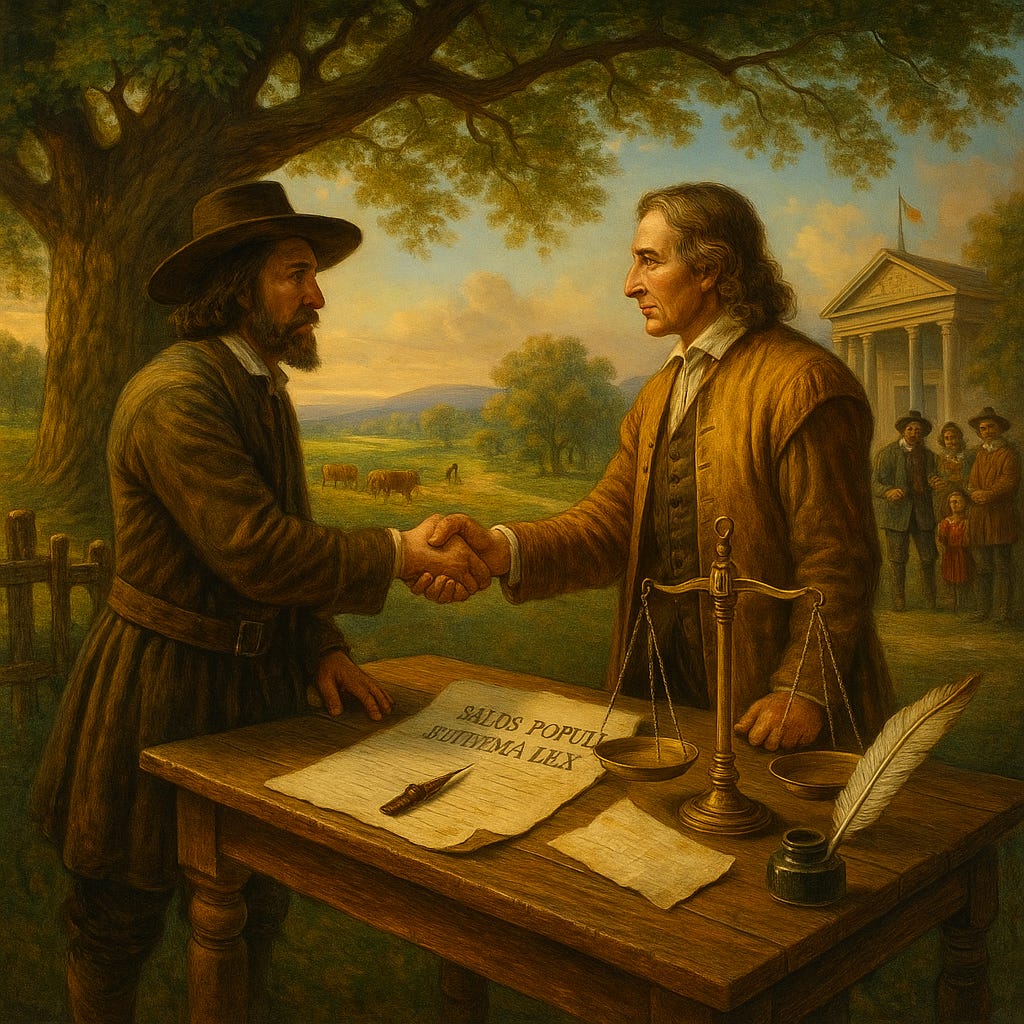Discussion for John Locke's Second Treatise of Government, Chapters VI–VIII
Reading Dates: May 25, 2025 – May 31, 2025
Brief Recap (Chapters I–V):
Last week, we covered Locke’s foundational arguments for natural law and natural rights, the idea of the state of nature, and the concept of property as rooted in labor and self-ownership. Locke set the stage for why governments are formed: to protect these natural rights when the state of nature proves insufficient.
Discussion Questions:
Locke separates parental authority from political authority. Think about your own experience—how do you see parental authority exercised in your family or community, and how is it different from the way governments exercise power?
Locke distinguishes between "tacit" and "explicit" consent to government. When you participate in society—such as paying taxes, using public services, or voting—do you feel that you have truly consented to the government’s authority? Why or why not?
Locke describes joining political society as a process of giving consent. Reflect on moments when you’ve consciously chosen (or not chosen) to participate in civic life. How important is active consent to you in being governed?
Do you think Locke’s idea of consent and government challenges or supports your own understanding of citizenship and your responsibilities as a member of society? In what ways?
Anything else you want to discuss?
Themes and Ideas to Explore:
1. Parental Power vs. Political Power
Locke is careful to separate the authority parents have over their children from the authority governments have over citizens. Parental power is natural, limited, and aimed at the child’s welfare and education—not absolute or permanent. By drawing this distinction, Locke rejects the analogy between paternal rule and political rule, a key argument used by defenders of monarchy.
2. The Social Contract and the Formation of Civil Society
Chapters VII and VIII elaborate on the idea of the social contract: individuals leave the state of nature and consent to form a political society for the better protection of their rights. This consent—sometimes explicit, but often tacit—lies at the root of legitimate government. Political authority, therefore, is not inherited or imposed but rests on the ongoing agreement of the governed.
3. Consent and Political Legitimacy
Locke’s distinction between tacit and explicit consent becomes crucial to his political theory. He argues that residing within a society and enjoying its benefits counts as tacit consent to its laws. But for government to remain legitimate, this consent must be meaningful and revocable, keeping rulers accountable to the people.
Background and Context:
A Radical Break with Divine Right: Locke’s emphasis on consent undermined traditional arguments for monarchy based on divine or hereditary authority. His clear separation of family and state directly attacks thinkers like Sir Robert Filmer, who justified monarchy on paternal grounds.
Enlightenment Political Theory: Locke’s discussion of consent and civil society influenced not just Britain but the American and French revolutions, shaping the very idea of constitutional democracy and citizenship.
Consent in Practice: Locke’s theory raises difficult questions about who is truly free to give consent, and what counts as valid agreement. These debates are still active today in discussions about voting, immigration, and the obligations of citizens.
Key Passage for Discussion:
“Men being, as has been said, by nature all free, equal, and independent, no one can be put out of this estate, and subjected to the political power of another, without his own consent.” (Chapter VIII)
How does this passage encapsulate Locke’s view of legitimate government and the formation of political society? In what ways is this principle still relevant (or challenged) today?
Stay Connected!
Reddit: r/greatbooksclub
Substack: Subscribe for emails and podcasts at The Great Books
X (Twitter): Follow and engage at @greatbooksww




